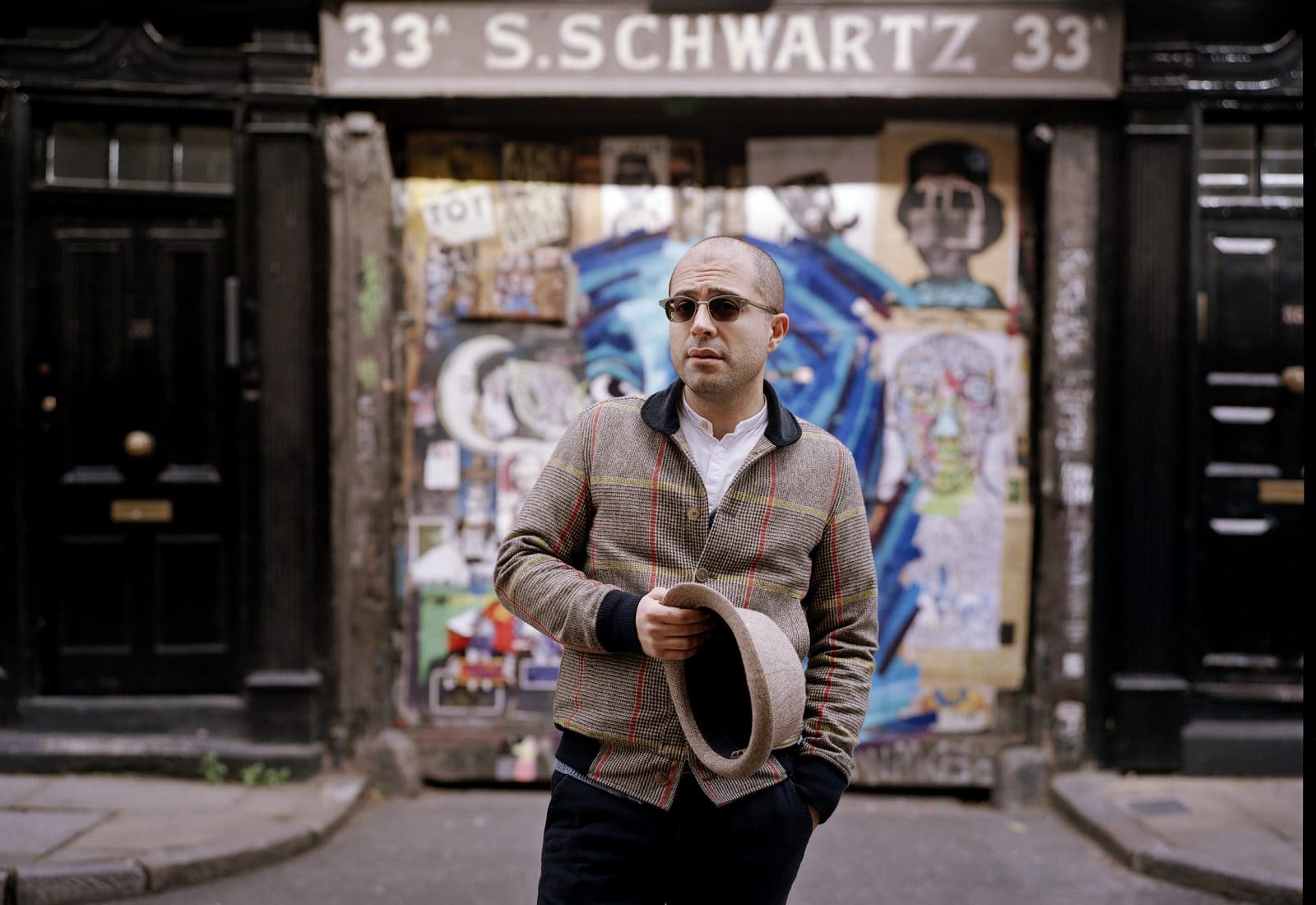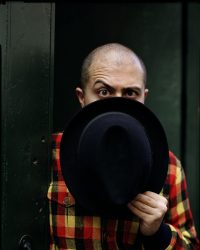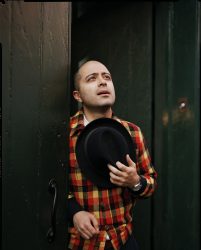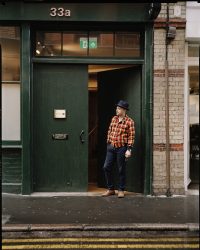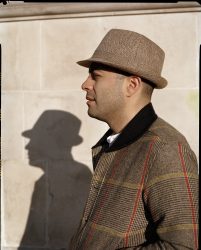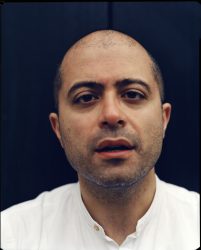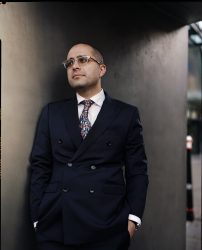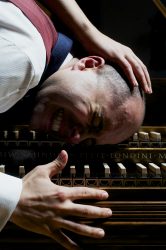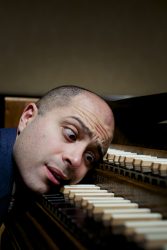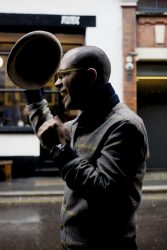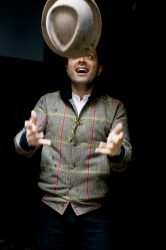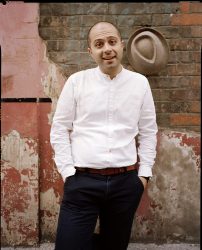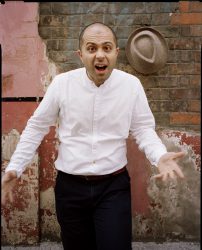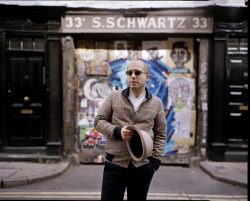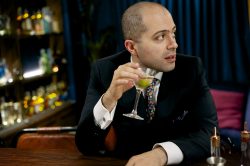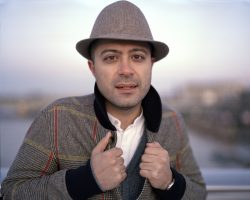Mahan Esfahani
Biography
downloadWhether in the realm of re-establishing the harpsichord’s presence as a significant concerto instrument with leading orchestras of the day, working with electronics and new media, or playing some of the first harpsichord recitals in such places as China, Mahan Esfahani has established himself as a new pioneer of his instrument. Following studies in musicology and history at Stanford University he completed his studies with Zuzana Růžičková in Prague. He was the first and only harpsichordist to be a BBC New Generation Artist (2008-2010), a Borletti-Buitoni prize winner (2009), and a nominee for Gramophone’s Artist of the Year (2014, 2015, and 2017). His richly-varied discography includes ten critically-acclaimed recordings for Hyperion and Deutsche Grammophon – garnering one Gramophone award, two BBC Music Magazine Awards, a Diapason d’Or and ‘Choc de Classica’ in France, and two ICMAs. For BBC Radio 3, Esfahani recently recorded a three-part series entitled The Alternative Bach exploring rare recordings and interpretations of JS Bach’s music. This goes alongside his ongoing cycle at the Wigmore Hall in which he performs the entire collection of JS Bach’s works for keyboard. In 2022, he became the youngest recipient of the Wigmore Medal, in recognition of his significant contribution and longstanding relationship with the Hall. Born in Tehran in 1984 and raised in the United States, he lived in Milan and then London for several years before taking up residence in Prague.
Mahan Esfahani has made it his life’s mission to rehabilitate the harpsichord in the mainstream of concert instruments, and to that end his creative programming and work in commissioning new works have drawn the attention of critics and audiences across the globe. He was the first and only harpsichordist to be a BBC New Generation Artist (2008-2010), a BorlettiBuitoni prize winner (2009), and a nominee for Gramophone’s Artist of the Year (2014, 2015, and 2017). In 2022, he became the youngest recipient of the Wigmore Medal, in recognition of his significant contribution and longstanding relationship with the Hall.
His work for the harpsichord has resulted in recitals and concerto performances in most of the major series and concert halls, amongst them London’s Barbican Centre, Oji Hall in Tokyo, the Forbidden City Concert Hall in Beijing, Shanghai Concert Hall, Carnegie Hall in NYC, Sydney Opera House, Melbourne Recital Centre, Lincoln Center’s Mostly Mozart Festival, Berlin Konzerthaus, Zurich Tonhalle, Wiener Konzerthaus, San Francisco Performances, the 92nd St Y, Schleswig-Holstein Music Festival, Cologne Philharmonie, Edinburgh International Festival, Aspen Music Festival, Aldeburgh Festival, Bergen Festival, Festival Mecklenburg-Vorpommern, Al Bustan Festival in Beirut, Jerusalem Arts Festival, the Leipzig Bach Festival, the Chicago Symphony, Ensemble Modern, BBC Symphony, Seattle Symphony, Melbourne Symphony, Auckland Philharmonia, Orquesta de Navarra, Malta Philharmonic, Orchestra La Scintilla, Montreal’s Les Violons du Roy, Hamburg Symphony, Munich Chamber Orchestra, Britten Sinfonia, Gürzenich Orchester Köln where he was Artist-in-Residence; and Los Angeles Chamber Orchestra, with whom he was an artistic partner for 2016-2018.
Recent highlights include his Artist-in-Residence at the Lammermuir Festival and Norfolk and Norwich Festival, and appearances with the Ulster Orchestra, Orquesta Sinfonica de Navarra, Milwaukee Symphony, Amarillo Symphony, Prague Radio Symphony, Brno Philharmonie, Odense Symphony and Orchestre National de Lyon, and recitals at Carnegie Hall, LSO St Luke’s, Muziekgebouw Eindhoven and Darmstadt. His Wigmore Hall Bach cycle continues with the keyboard concertos with the Britten Sinfonia which also toured across the UK.
Particularly renowned for his championing of contemporary music, Esfahani regularly partners with conductors such as François-Xavier Roth, Ludovic Morlot, Thierry Fischer, Leif Segerstam, Thomas Dausgaard, Martyn Brabbins, Ilan Volkov, Andrew Manze, Antoni Wit, Joshua Weilerstein, Ken-David Masur, and Michael Sanderling. He has been the dedicatee of some twenty new works from some of the major composers of our time — commissioning amongst others: Bent Sørensen, Gavin Bryars, George Lewis, Poul Ruders, Brett Dean, Michael Berkeley, and Miroslav Srnka — as well as from the next generation of voices in contemporary music, including Anahita Abbasi, Laurence Osborn, Francisco Coll, and Daniel Kidane.
His richly-varied discography includes criticallyacclaimed recordings for Hyperion and Deutsche Grammophon – garnering one Gramophone award, two BBC Music Magazine Awards, a Diapason d’Or and ‘Choc de Classica’ in France. His latest disc in his solo Bach cycle for Hyperion was awarded a ICMA in the Baroque instrumental category, and his first concerto disc for Hyperion, of Czech concertos, was released in February 2023 and won an Opus Klassik award.
Esfahani studied musicology and history at Stanford University, where he first came into contact with the harpsichord in the class of Elaine Thornburgh. Following his decision to abandon the law for music, he studied harpsichord privately in Boston with Peter Watchorn before completing his formation under the celebrated Czech harpsichordist Zuzana Růžičková. Following a three-year stint as Artist-in-Residence at New College, Oxford, he continues his academic associations as an honorary member at Keble College, Oxford, and as professor at the Guildhall School of Music and Drama in London. He can be frequently heard as a commentator on BBC Radio 3 and Radio 4 and as a host for such programs as Record Review, Building a Library, and Sunday Feature, as well as in live programmes with the popular mathematician and presenter Marcus du Sautoy; for the BBC’s Sunday Feature he is currently at work on his fourth radio documentary following two popular programmes on such subjects as the early history of African-American composers in the classical sphere and the development of orchestral music in Azerbaijan.
Born in Tehran in 1984 and raised in the United States, he lived in Milan and then London for several years before taking up residence in Prague.

